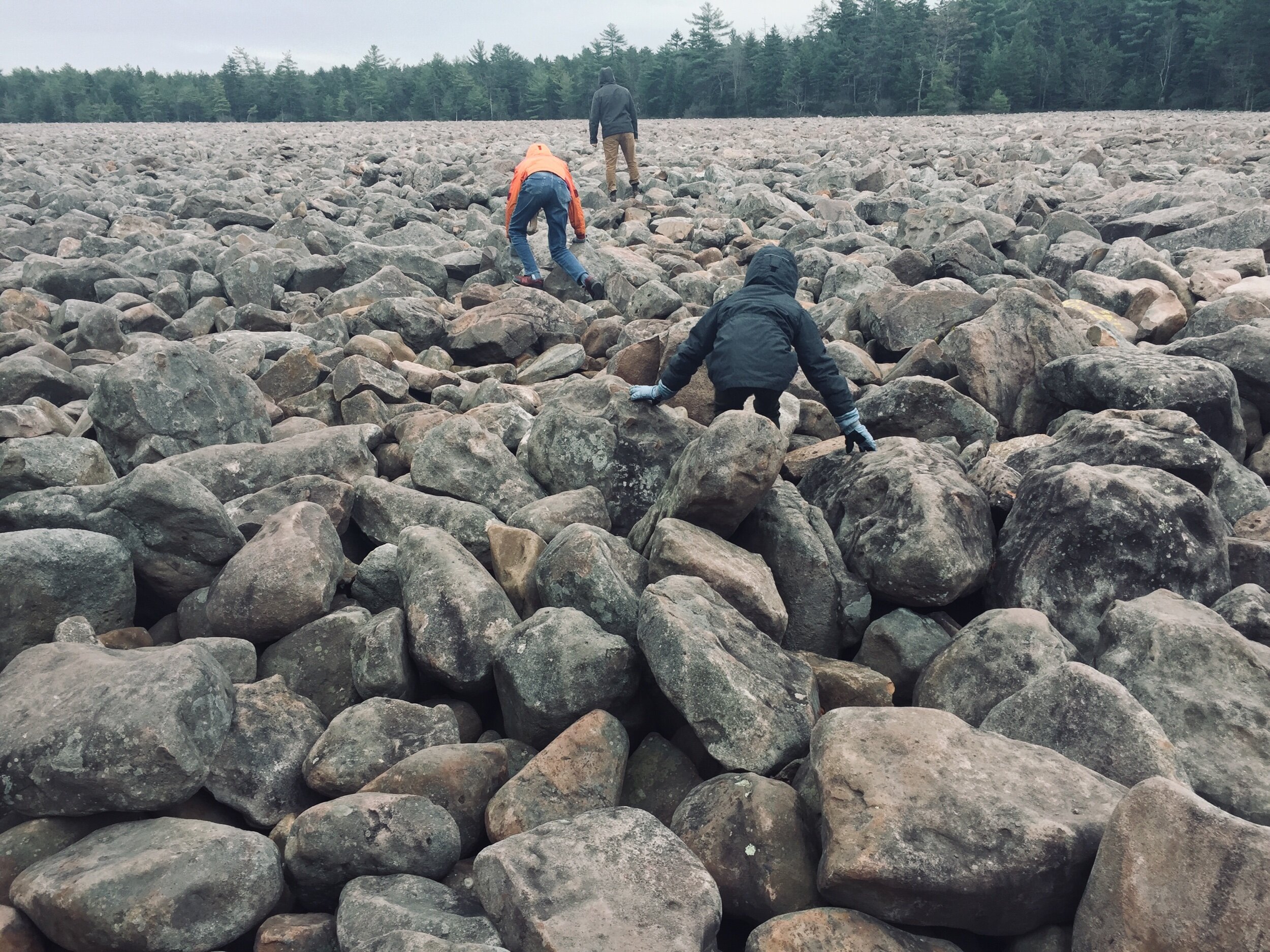Searching for Gems
Hickory Run Boulder Field - an ice age relic and geological wonder
I was a kid who wasn't allowed to pledge to the flag or celebrate holidays. For many years, I resented this separation from my peers' shared rituals, but as an adult, I can appreciate some aspects of what this absence has taught me. What I've viewed as a void was actually, in some ways, an open and empty space to observe and reflect on why people do the things they do. Why do we have rituals? What do they mean? Who decides the rules? In what ways are people impacted by them? What is valuable? What needs to be destroyed? What elements of past rituals and traditions can I use and adapt to invent my own?
In East Asian Five Element theory, the Metal Element is associated with the fall season, grief, our sense of connection, and our relationship with the past. In the body, the Metal yin/yang organs - the Lung and Large Intestine - have similar functions, in that they process the air we breathe and food and drink we ingest to sustain the body with what it needs, and get rid of waste, or excess. Folks with dominant Metal energy tend to be discerning, contemplative, pay attention to detail, and search for deeper meaning. If there is a Metal imbalance in the body, one might subconsciously hold the breath, hold onto emotions, and experience respiratory or digestive upset in the form of chronic cough, constipation, or diarrhea. In nature, Metal is not as visibly abundant as the other elements (wood, fire, earth, and water), and therefore has a quality of mystery to it. It is buried in the depths of the Earth, and we have to dig deep to find hidden gems. It's often not the rock that is what's most precious. It is the digging, the sorting, the process - and what we learn from it - that we must hold close.
